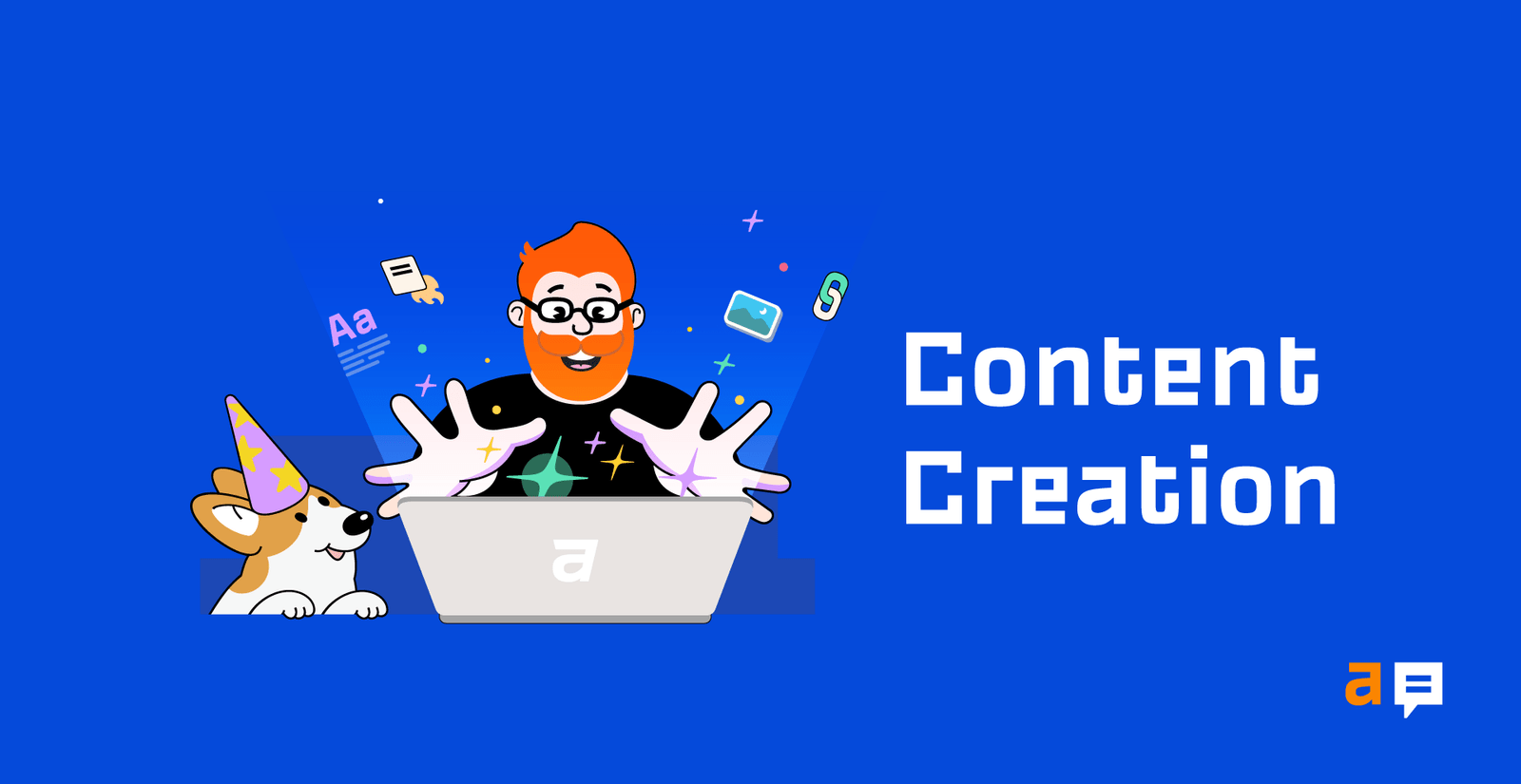Mastering Content Creation in the AI Revolution: A Step-by-Step Guide

Welcome to the age of artificial intelligence (AI), where machines are becoming increasingly capable of performing tasks that were once thought to be exclusive to human beings. From self-driving cars to virtual assistants, AI has made its way into our daily lives and is transforming the way we live, work, and communicate. One area where AI has had a significant impact is content creation.
With the help of AI tools, businesses and individuals can now create high-quality, engaging content at a faster pace than ever before. In this article, we will explore the emerging trends in content creation, understand the impact of AI on content writing, and provide a step-by-step guide to mastering content creation in the AI revolution.
Emerging Trends in Content Creation
The rise of AI has brought about several changes in the world of content creation. Here are some of the emerging trends that are shaping the future of content creation:
Natural Language Generation (NLG)
Natural Language Generation (NLG) is a subfield of AI that focuses on creating human-like text from data. NLG algorithms analyze large datasets and generate written content that is indistinguishable from human-written content. This technology has been used by companies like Forbes and The Associated Press to automate the creation of news articles and reports.
Personalization
With the help of AI, businesses can now personalize their content to cater to the specific needs and preferences of their target audience. AI-powered tools can analyze user data and behavior to create personalized content that resonates with each individual.
Voice Search Optimization
As more and more people use voice assistants like Siri and Alexa, optimizing content for voice search has become crucial. AI-powered tools can help businesses optimize their content for voice search by analyzing the language patterns and phrases used in voice queries.
Visual Content Creation
AI is not limited to just written content; it can also be used to create visual content such as images, videos, and infographics. AI-powered tools can analyze data and generate visuals that are relevant and appealing to the target audience.
Understanding the Impact of AI on Content Writing

The rise of AI has sparked a debate about its impact on content writing. Some argue that AI will replace human writers, while others believe that it will enhance their capabilities. Here are some ways in which AI is changing the landscape of content writing:
Increased Efficiency
One of the most significant impacts of AI on content writing is increased efficiency. With the help of AI tools, writers can now automate tasks like research, data analysis, and even content creation. This allows them to focus on more creative aspects of content writing, such as storytelling and engaging with the audience.
Improved Accuracy
AI-powered tools are programmed to analyze data and generate accurate and error-free content. This eliminates the risk of human error and ensures that the content is of high quality and meets the desired standards.
Enhanced Creativity
Contrary to popular belief, AI is not here to replace human creativity; instead, it is here to enhance it. By automating mundane tasks, AI frees up time for writers to focus on more creative aspects of content creation. Additionally, AI tools can provide suggestions and ideas that can spark the writer’s creativity.
Consistency
With AI, businesses can ensure consistency in their content across different platforms and channels. AI-powered tools can analyze the brand’s tone and style and generate content that aligns with it, ensuring a consistent brand voice.
Embracing AI Tools for Content Creation

Now that we have a better understanding of the impact of AI on content writing let’s explore how we can embrace AI tools to improve our content creation process. Here are some AI-powered tools that can help you create high-quality content:
Grammarly
Grammarly is an AI-powered writing assistant that helps writers improve their grammar, spelling, and punctuation. It also provides suggestions for sentence structure and word choice, making it an invaluable tool for content creators.
Wordsmith
Wordsmith is a natural language generation platform that allows businesses to automate the creation of written content. It can generate personalized reports, product descriptions, and even news articles based on data and templates provided by the user.
Canva
Canva is an AI-powered graphic design platform that allows users to create stunning visuals without any design experience. It uses AI to suggest layouts, fonts, and colors that are visually appealing and aligned with the brand’s style.
BuzzSumo
BuzzSumo is an AI-powered content marketing tool that helps businesses identify the most popular and engaging content in their industry. It can also provide insights into what type of content performs well on different platforms, allowing businesses to tailor their content accordingly.
Leveraging AI for Content Strategy and Planning

AI can also be used to improve content strategy and planning. Here are some ways in which businesses can leverage AI for better content planning:
Audience Analysis
AI-powered tools can analyze user data and behavior to provide insights into the target audience’s preferences and interests. This information can then be used to create content that resonates with the audience and drives engagement.
Topic Generation
Coming up with new and relevant topics for content can be challenging. AI-powered tools can analyze search trends and social media conversations to generate topic ideas that are likely to perform well.
Content Distribution
AI can also help businesses determine the best channels and times to distribute their content. By analyzing user behavior and engagement patterns, AI-powered tools can provide recommendations for optimal content distribution.
Crafting AI-Powered Content for Different Platforms


Different platforms have different requirements when it comes to content. For example, the tone and style of content on social media may differ from that of a blog post. Here are some tips for crafting AI-powered content for different platforms:
Social Media
When creating content for social media, it is essential to keep it short, engaging, and visually appealing. AI-powered tools can help businesses create social media posts that are optimized for each platform and aligned with the brand’s tone and style.
Blog Posts
Blog posts require a more in-depth and informative approach. AI-powered tools can help writers research and analyze data to create well-researched and data-driven blog posts that are relevant and valuable to the target audience.
Email Marketing
AI can also be used to personalize email marketing campaigns. By analyzing user data, AI-powered tools can generate personalized email content that resonates with each recipient and increases the chances of conversion.
Optimizing AI-Generated Content for Search Engines

Search engine optimization (SEO) is crucial for ensuring that your content reaches a wider audience. Here are some tips for optimizing AI-generated content for search engines:
Keyword Research
AI-powered tools can help businesses identify the most relevant and high-performing keywords for their content. This ensures that the content is optimized for search engines and has a better chance of ranking higher in search results.
Natural Language Processing (NLP)
NLP is a branch of AI that focuses on understanding human language. By using NLP techniques, businesses can ensure that their content is written in a way that is easy for search engines to understand and rank.
Quality Content
While AI can help with keyword research and optimization, it is essential to remember that quality content is still the key to SEO success. AI-generated content should be well-written, informative, and engaging to rank well in search engine results.
Ensuring the Quality and Accuracy of AI-Generated Content

As with any technology, there are concerns about the quality and accuracy of AI-generated content. Here are some steps businesses can take to ensure the quality and accuracy of their AI-generated content:
Human Oversight
While AI can automate many tasks, it is still essential to have human oversight when it comes to content creation. Writers should review and edit the content generated by AI tools to ensure its accuracy and quality.
Training AI Models
AI models need to be trained on high-quality data to produce accurate results. Businesses should invest in training their AI models regularly to ensure that they are up-to-date and producing high-quality content.
Fact-Checking
AI-generated content may not always be accurate, especially when it comes to facts and figures. It is crucial to fact-check the information provided by AI tools before publishing it.
Measuring the Success of AI-Powered Content

As with any marketing strategy, it is essential to measure the success of AI-powered content to determine its effectiveness. Here are some metrics businesses can use to measure the success of their AI-powered content:
Engagement
Engagement metrics such as likes, shares, and comments can help businesses determine how well their content is resonating with the audience. High engagement rates indicate that the content is relevant and engaging.
Conversions
Conversions refer to the desired action taken by the audience, such as making a purchase or signing up for a newsletter. By tracking conversions, businesses can determine if their AI-powered content is driving the desired results.
Traffic
Tracking website traffic can also provide insights into the success of AI-powered content. An increase in website traffic after publishing AI-generated content indicates that it is performing well and driving more people to the website.
Ethical Considerations in AI-Powered Content Creation

As AI becomes more prevalent in content creation, it is essential to consider the ethical implications of using this technology. Here are some ethical considerations to keep in mind when using AI for content creation:
Transparency
Businesses should be transparent about the use of AI in content creation. This includes disclosing when AI has been used to generate content and giving credit to the AI tools used.
Bias
AI models are only as good as the data they are trained on. If the data is biased, the results will also be biased. Businesses should ensure that their AI models are trained on diverse and unbiased data to avoid perpetuating stereotypes and discrimination.
Human Oversight
As mentioned earlier, human oversight is crucial when using AI for content creation. Writers should review and edit AI-generated content to ensure its accuracy and quality.
The Future of Content Creation in the Age of AI
The use of AI in content creation is still in its early stages, and we can expect to see many advancements in this field in the future. Here are some predictions for the future of content creation in the age of AI:
- AI will become more integrated into the content creation process, from ideation to distribution.
- AI-powered tools will become more sophisticated and capable of creating high-quality content that is indistinguishable from human-written content.
- Personalization will become even more critical, with AI generating personalized content for each individual based on their preferences and behavior.
- The use of AI will become more prevalent in visual content creation, with AI-generated images and videos becoming the norm.
Conclusion
The rise of AI has brought about significant changes in the world of content creation. By embracing AI tools and techniques, businesses and individuals can create high-quality, engaging content at a faster pace than ever before. However, it is essential to remember that AI is not here to replace human writers but to enhance their capabilities. With the right approach and ethical considerations, AI can help us master content creation in the AI revolution. So, embrace AI and stay ahead of the game in the ever-evolving world of content creation.




